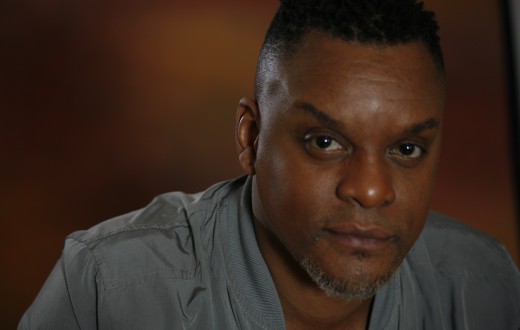“I’d love to be a diva. But I’d then have to send so many apology notes for my abhorrent behavior.”
–Amy Adams
We talk all the time about what we are striving toward as actors and performers, how to present our best face for auditions and how to remain positive as we overcome the trials and tribulations of this mad, mad profession. And constantly moving forward is of course the only way to live one’s life – certainly it’s the only way to get better at anything, especially acting.
But every now and then maybe it’s a good idea to talk instead about what NOT to do. Because in order to move forward, in order to learn, we also have to know what we’re moving AWAY from. Some actors simply don’t understand how widespread the consequences are when they show up on set unprepared to do the job. Here are a few ideas on how not to develop a reputation as a “bad” actor in this sense, along with some stories presented (anonymously) by people in the business.
1. It’s Not Terrible Acting, It’s Terrible Behavior
When we talk here about “bad actors,” let’s clarify: we’re not talking about the acting itself right now, but rather the behavior between takes or backstage. The actor who treats others badly isn’t necessarily a bad actor; the truth is, they’re a terrible person. It wouldn’t matter what field they were working in, they’re behaving badly. Here’s a story from a well-known NYC producer/director on the trials and tribulations of his early days starting out (names withheld for obvious reasons):
“I was working on this short film with a small budget, just $20,000. We ended up hiring this woman to play the lead based on her friendship with the director. First of all, she wasn’t really an actor, she was a host. She still works in the area today, and she’s great on-camera, hosting, reading news or whatever. But for this shoot – and keep in mind, this is before she had even a D-list, tiny slice of a very sad kind of celebrity – she got hired without auditioning because she knew the director. So, OK, fine, for the director, it’s your ass, right? But then this girl rolls in late every day – and she just didn’t even show up the first day of shooting! Someone had to go to her house and get her, and we didn’t start until like four or five hours late. She claimed she got the days mixed up, but whatever. So we’re talking thousands of dollars we’re paying the crew, the rent on the location – it just all snowballs into this huge nightmare. And then top it all off, she couldn’t even act once we finally got her in front of the camera! I guarantee there are still people around here talking about her and talking about that shoot to this day.”
2. Sometimes The Actor Doesn’t F*&%ing Prepare
Bad behavior on set isn’t always deliberate, but it nonetheless has big consequences that ripple outward and affect far more people than most actors understand. They say actors are “a dime a dozen,” but you have to understand that you having a bad day can resonate and mean a bad day for a whole lot more people than you might have imagined. Going to set or to the theater means that, no matter what, the show must go on. Yes, we are people who have to be in close touch with our emotions in order to perform. But we must always, ALWAYS remember we are also professionals hired to do a damn job. Show up on set or at the theater early, and ready to work. No matter what’s going on in your life you must find a way to put it away in a box while you’re working, because you’re messing with other people’s lives –and their money – if you don’t. In other words, don’t be like this girl, a story related to me by someone who has worked extensively as a director but currently works in casting:
“My first ‘How-to’ video had a budget of $10,000 and it had a host. So we hired this girl who was great in the audition, but when it came time to shoot her scene, she showed up on set with red, puffy eyes from crying all night because her boyfriend had kicked her out of the house the night before. We tried and tried but we couldn’t make her look good because her face was so puffy. Not only that, she was still so upset the entire day that she couldn’t even get through her lines, at least not well. The shoot took us like five times as long as we’d planned for. Of course, re-scheduling the shoot date would have been the fix, but I was on an unmovable timeline with my editor and it had to be done that week. We used the best takes but it was far less than ideal. Made my whole video look bad because of it.”
This note on professionalism is important to hammer on a bit more, because you have to understand, people talk. If you show up unprepared, not knowing your lines, hungover and looking like hell, or just not into it, you’re not only screwing your own reputation, you’re screwing the reputations of everyone associated with you: your agent, the casting director who chose you, a friend in the biz who recommended you – they will all get a second look from the director and producer you disappointed with your lack of professionalism. Why? Because the two most valuable and premium things in this business are Time and Money, and actors who behave less than professionally cost productions both.
One email response to my query on bad actor behavior was short but kind of poignant:
“As a casting director I’ve had casting clients hire one of my actors then bad things happened on set and they never hired me again.  ” – Atlanta-based casting director
” – Atlanta-based casting director
I also received comments from CDs pointing out some actor mistakes that should be obvious to any actor who has been in the business for more than five minutes: actors who show up on set with a terrible sunburn, or with a radically different haircut than they had two days ago at the casting, actors who don’t know their lines, actors who can’t remember the lines once the camera is rolling, or who simply can’t act when it comes to being on camera and under the pressure of a real shoot. All of these cost productions time, money, and stress. Don’t be that guy/girl.
3. Divas Are So Over
“I think the era of the diva actress is coming to an end.” –Amanda Seyfried
Oftentimes your acting could be spot-on, but if you behave like a diva on set, sorry, it’s not cute. Also, unlike some people seem to think, being a diva on set is not a prerequisite to someday being a star. You will not be remembered for your acting, you’ll be remembered for your behavior, and as you cost productions money, time, and headaches, you will find your future opportunities drying up.
Look, acting as we all know is a highly demanding job that requires us to access strong emotions as we portray conflict on stage or on screen in such a way that it seems like real conflict happening to real people. In order to do that well you’ve got to go to some dark and upsetting places inside yourself form time to time. The problem for some actors is they don’t know how to turn off the conflict once the director yells “Cut” or the curtain has fallen. And some actors take those emotions out on the rest of the cast and crew. Really, let’s face facts: we could easily replace the word “diva” with the word “bitch,” am I right? In what workplace might it ever be acceptable to throw a soda at the head of a PA because it wasn’t diet? (A story related by a CD who sent this not-at-all famous, decidedly D-list actor to work on a film that might have been his first studio big break. The actor was fired the first day.) Where is it acceptable to scream at your boss – or your underlings – or storm off from your workplace and pout?
The bottom line is: be aware that your behavior as an actor affects the bottom line of a production in a big way. Be a professional, treat other people you’re working with like professionals, and be respectful of the time and money that has been invested in you, and you will develop a reputation as someone directors and producers can rely on, not as a mental breakdown waiting to happen – or worse, a money and time vacuum. Be nice, show up ready to work and make everyone else’s life easier!







